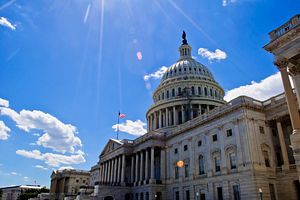In the upcoming U.S. midterm elections, many polling specialists are predicting that the Democratic Party will retake the House of Representatives, and give the Democrats a very slim chance of retaking the Senate as well. Both houses of Congress are currently in Republican hands, but a wave of Republican retirements in the House, a spike in Democratic interest in the midterms, and strong Democratic fund-raising and candidates could give the Democrats a House majority. FiveThirtyEight, probably the best-known analysis and prediction site, currently gives the Democrats roughly an 85 percent chance of winning the House, and around a 20 percent chance of retaking the Senate.
If Democrats retake the House, the shift will likely mean changes in Asia policy. As I have written before, although Congress has in general deferred more on foreign policy issues to the president in the past two decades, on Southeast Asia, Congress has continued to wield significant influence – because the region is often ignored by executive branch policymakers, because several prominent congresspeople have deep interests in Southeast Asia policy, and because Congress has taken a strong interest in human rights in Asia.
With a Democratic majority in the House, the most likely candidate to head the House Foreign Affairs Committee would be Eliot Engel, currently the ranking minority member on the committee. Which Democrats, however, would take over the subcommittees, including the subcommittee on Asia and the Pacific, remains somewhat unclear. Still, several Asia-related themes are likely to emerge in a Democrat-led House and a Foreign Affairs Committee headed by Democrats.
For one, Democrats are likely to push the Trump administration harder to actually explain and devote resources to its “free and open Indo Pacific” strategy, including resourcing the increasingly depleted State Department. Some Democrats argue that the administration has not fully explained the free and open Indo Pacific strategy, how exactly it is going to be implemented, and what its end goals are. Democrats probably will attempt to bring greater stability to the State Department, which has seen much of its senior leadership leave in the past two years, although the Trump administration has nominated a respected and experienced Asia specialist, former Air Force Brigadier General David Stilwell, as assistant secretary of state for East Asian and Pacific affairs. They would attempt to do so, possibly, by creating mechanisms to allow former senior Foreign Service officers to return to the Department, for instance.
Democrats further may attempt to use hearings and other measures to highlight alleged retaliation against State Department officials, such as by calling for more inspector general reports, and to pass the State Department Authorization bill, which has not actually been passed in years. The bill would set priorities for the State Department and foreign policy generally, and would provide formal congressional support for the State Department. There is still a chance the State Department Authorization bill will pass in this Congress, before the newly elected Congress takes office in January 2019, but it is an outside chance at best.
Democrats also likely would try to have full committee hearings in the House, which have been rare under Republican leadership, and will use the full committee hearings to focus on issues related to China. Although the Trump administration has pursued a notably hawkish China policy, Democrats are not necessarily going to back off on that tough approach; there is an increasingly bipartisan consensus in Washington that the United States should adopt a tougher policy toward Beijing.
Still, a Democratic majority might pose more questions for the White House about the wisdom of the Trump administration’s trade policies toward China – such as whether such policies are counterproductive for the U.S. economy, and also undermine U.S. efforts to enlist China on other areas like dealing with North Korea. At the same time, too, a Congress with at least one house controlled by Democrats is actually likely to be relatively supportive of the White House’s North Korea policy, since many progressive Democrats favor discussions with Pyongyang and do not want to block an attempted diplomatic solution with the North.
In addition, a Democrat-led House, and a Democrat-run foreign affairs committee in the House, probably will try to focus attention on a range of nontraditional security issues in Asia that have been largely ignored by the Republican House and Republican Senate. They also likely would focus on reaffirming U.S. commitments to Asia’s architecture, including ASEAN and the East Asia Summit, and to key U.S. allies like Australia and Japan.
Indeed, the House foreign affairs committee could hold hearings related to issues like climate change and its impact on Asia, and on counterterrorism efforts in Southeast Asia. Democrats also likely would try to elevate human rights in discussions of Asia policy – in Myanmar, in the Philippines, and in other countries. Some Democrats, for instance, may attempt to make any U.S. negotiations with the Philippines over a bilateral free trade agreement contingent on improvements in the human rights climate under Philippine President Rodrigo Duterte. They also may attempt to move forward tougher legislation on Myanmar.
The Democrats have further made clear that they intend to use power in the House, should they win a majority there, to more aggressively probe the president’s alleged conflicts of interest, and to provide more assertive oversight of many government agencies. This examination of alleged conflicts of interest could include investigations of possible conflicts related to Asia policy, including questions about the Trump family’s branding opportunities in China and a Trump-branded resort in Indonesia that appears to have received $500 million in loans from the Chinese government.
Joshua Kurlantzick is senior fellow for Southeast Asia at the Council on Foreign Relations (CFR). He is the author, most recently, of A Great Place to Have a War: America in Laos and the Birth of a Military CIA.

































